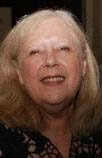I’ve added this book to a small list of works I recommend to aspiring writers. Although the focus is on poetry and poetics, the insight inherent in each article is applicable to good writing in general. One of my favorite responses came from poet Mary Oliver. Ratiner asked her about a person who may be a “pivotal figure” a writer remembers.
“No,” Oliver responded, “I truly feel that the pivotal moments for me were reading poems. I can remember the original excitement when I read poems and thought, my goodness, these are not chronological—these do not happen on Wednesday and finish on Thursday. These happen over and over…And I want to do this too.”
Oliver says she didn’t even publish until her late 20s.
I’d highly recommend this book for writers at all levels. It’s perfect for teaching creative writing in the classroom. Ratiner seems to know exactly what to ask these accomplished writers in order to elicit the best, most helpful responses. The answers aren’t just great; the questions are as well.
Note: Read my interview with Donald Hall in the December issue of The Writer.
Join me and other poets including Bonny Barry Sanders, Dr. Sharon Scholl, Michele Leavitt and others for "Meet the Poets" at the Jacksonville Public Library, Southeast Regional branch in Deerwood Park on Tuesday, November 6, at 7:30 p.m.


